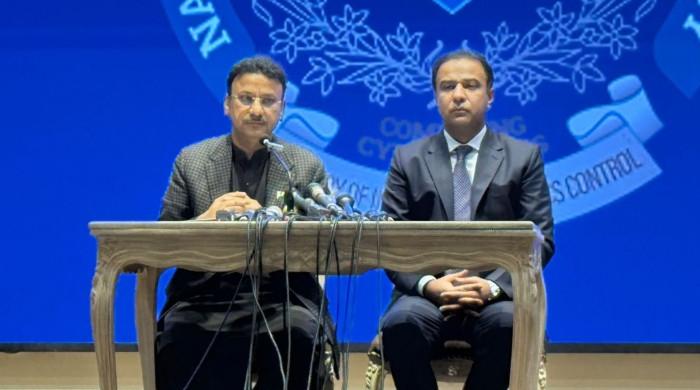Four factory owners booked, one arrested over mysterious deaths in Keamari
Deaths were reportedly caused by inhaling toxic fumes released from recycling factories in the area
January 30, 2023

- Case filed against four factory owners for negligence, manslaughter.
- Deaths reported in Keamari localities from Jan 10-25.
- Efforts underway to arrest the other factory owners: police.
A local factory owner named Khair Muhammad was arrested over charges of manslaughter and negligence after 18 people, including 16 children, reportedly died due to toxic fumes released from multiple recycling factories in the area, reported The News.
The deaths were reported in Ali Muhammad Goth and Mawach Goth between January 10 and January 25 after inhaling mysterious toxic gases emitting from the factories operating in the residential areas.
The police registered a First Information Report (FIR) at Mochko Police station under sections 322 and 284/34 of Pakistan's Penal Code on labourer Khadim Hussain's complaint. Khadim, a resident of the Mawach Goth, lost four family members in the recent series of deaths in the area.
Section 322 deals with punishment for Qatl-bis-sabab, Section 284 deals with negligent conduct concerning the poisonous substance, and Section 34 deals with acts done by several persons in furtherance of common intention.
In his statement to the police, the complainant told that several recycling factories are operating near his locality without taking any precautionary measures and emitting mysterious toxic gases that have taken several innocent lives.
The FIR has been registered against three factory owners: Khair Muhammad, alias Sher Ali, Shahid Hussain and Saeed Khan, SHO Chaudhry Shahid told The News. He said that some unidentified factory owners have also been accused in the FIR.
The officer said that efforts are underway to arrest the other factory owners.
On Saturday, Director General Health Sindh's report said that a measles outbreak could be one of the probable causes of deaths in the area. However, the final verdict could only be given after confirmation from the National Institute of Health (NIH), Islamabad, where blood samples had been sent for analysis.









